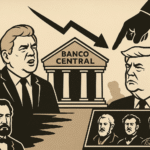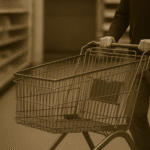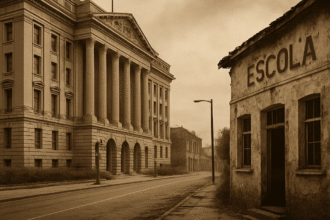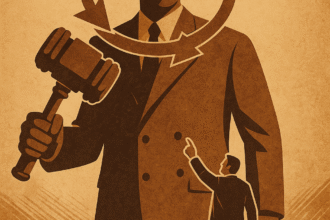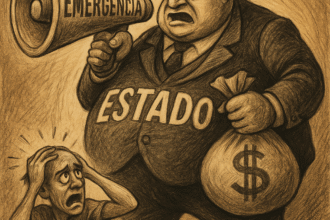History has already taught us. Theory has already proven it. Practice has already made it clear.
And yet governments persist in an old fantasy: control prices as a way to protect the people.
But it's not about protection. It's about manipulation.
When the State imposes artificial limits on the value of products, it is, in practice, breaking the thermometer and pretending that the fever has passed.
What happens next?
- Shortage
- Market corruption
- parallel market
- Quality decline
- More inflation in the medium term
Countries like Argentina, Venezuela, Cuba, North Korea and, more recently, Sri Lanka, illustrate well what happens when politicians believe that decrees are worth more than the balance between supply and demand.
In Brazil, the debate is back with a vengeance. There are those who advocate “freezing food prices,” “regulating rent prices,” and “limiting corporate profits.”
But this is nothing new — it's just the state stubbornness as always, disguised as a popular measure.
The market is not cruel. It is a mirror.
When the price of a product goes up, it is not being “evil.” It is signaling scarcity. It is asking for a response: produce more, consume less, look for alternatives.
When the State distorts this signal, the result is predictable: supply crisis and real shortages.
Just remember what happened in 1986, with the price freeze during the Sarney government. The “magic formula” didn’t last long. Supermarkets emptied out. Inspectors became protagonists. Business owners hid their products.
The people, of course, were left without.
“Controlling prices is like trying to manipulate the clock to stop time from passing.”
— Ludwig von Mises
Populism likes shortcuts, but the economy takes its toll
Today, Lula criticizes expensive food, Trump threatens to control fuel prices. In different languages, the speech is the same: “let's protect the people from the market.”
But the truth is different: when the market is silent, the people pay — with shortages, queues, and a devalued currency.
What to do?
Instead of controlling prices, the government should:
- Reduce taxes on production and consumption
- Ensure legal security and freedom to undertake
- Stimulate competition, don't stifle profits
- Cut public spending to avoid relying on inflation as an invisible tax
Conclusion
Controlling prices is not public policy.
AND political despair disguised as solidarity.
It's like painting a moldy wall: pretty on the outside, rotten on the inside.
The market is not perfect — but it is the only process capable of allocating resources efficiently without the need for force or censorship.
If there is one side of history that always loses, it is that of state arrogance that tries to overcome reality by force. And if there is a price that the people pay dearly, it is that of freedom stifled by decrees and tables.

